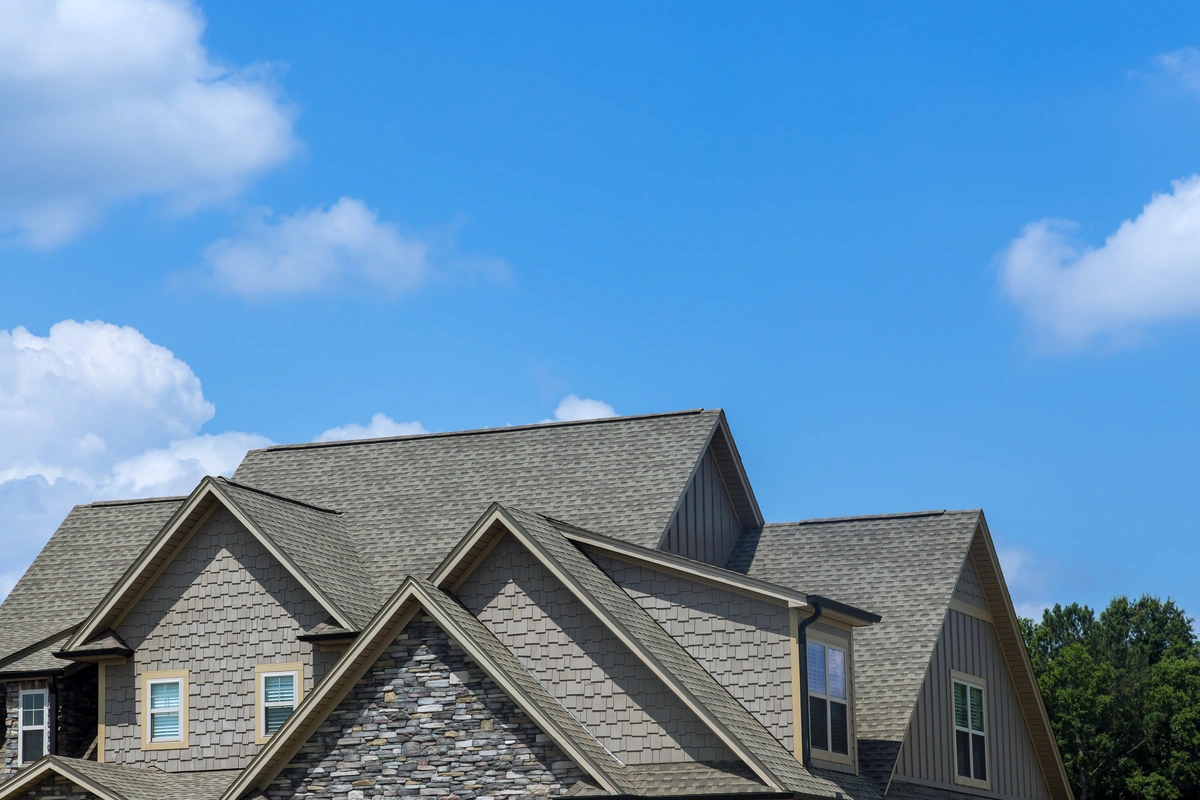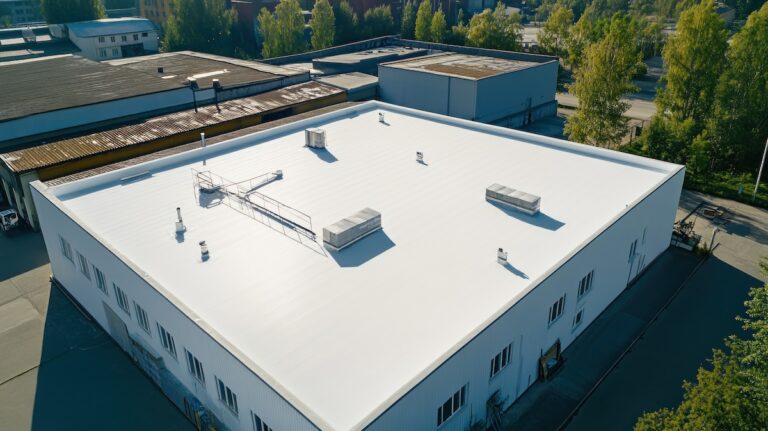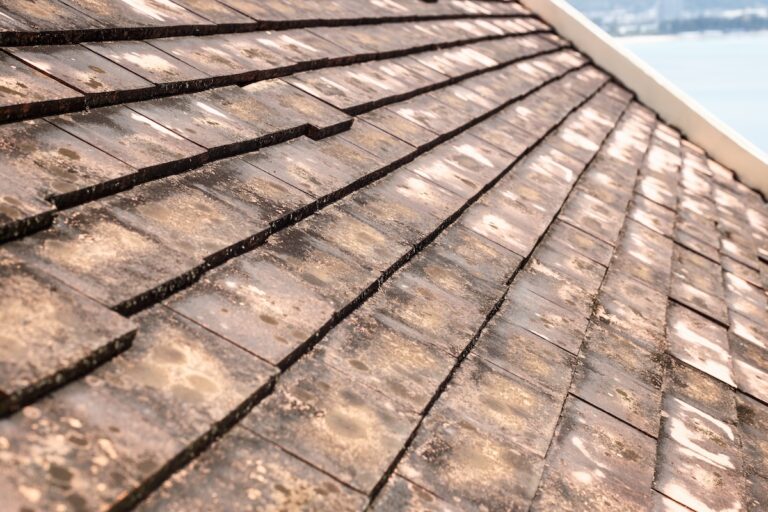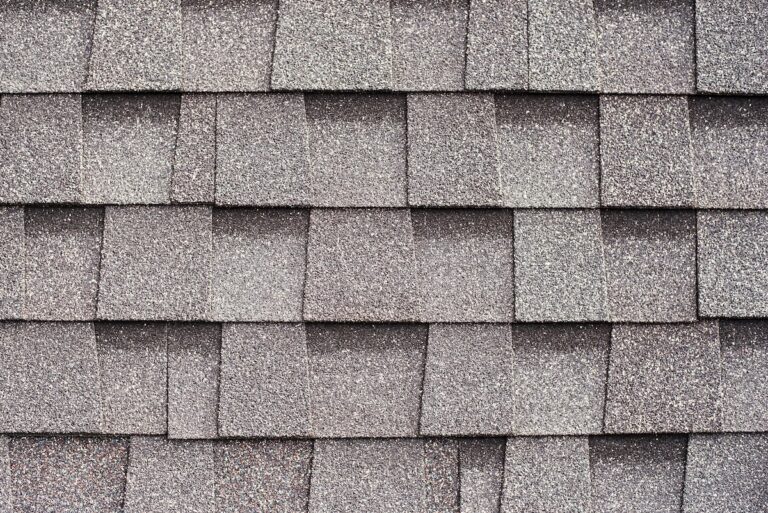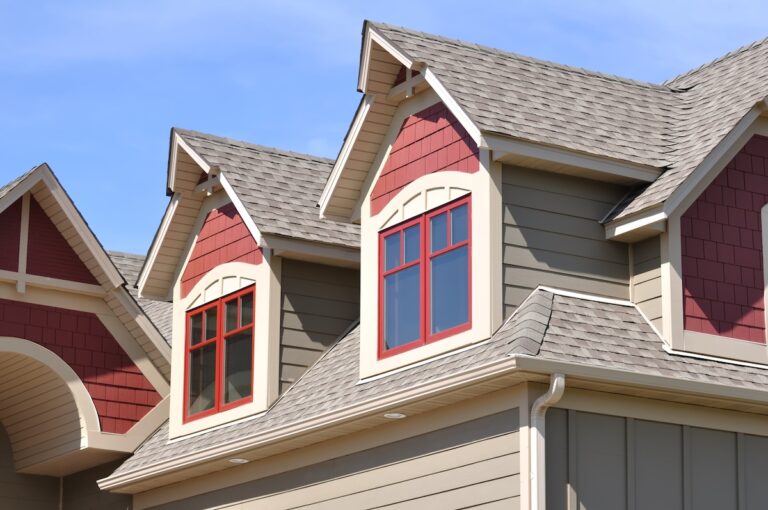durable option, offering homeowners a blend of aesthetics, durability, and cost-effectiveness. But how do you know that they are right for your roof replacement?
We’ll cover all the facts, including:
- What composite roof shingles are
- Their advantages and disadvantages
- Longevity
- Suitability as an alternative to traditional asphalt shingles
- Installation costs
- Maintenance tips
What are Composite Roof Shingles?
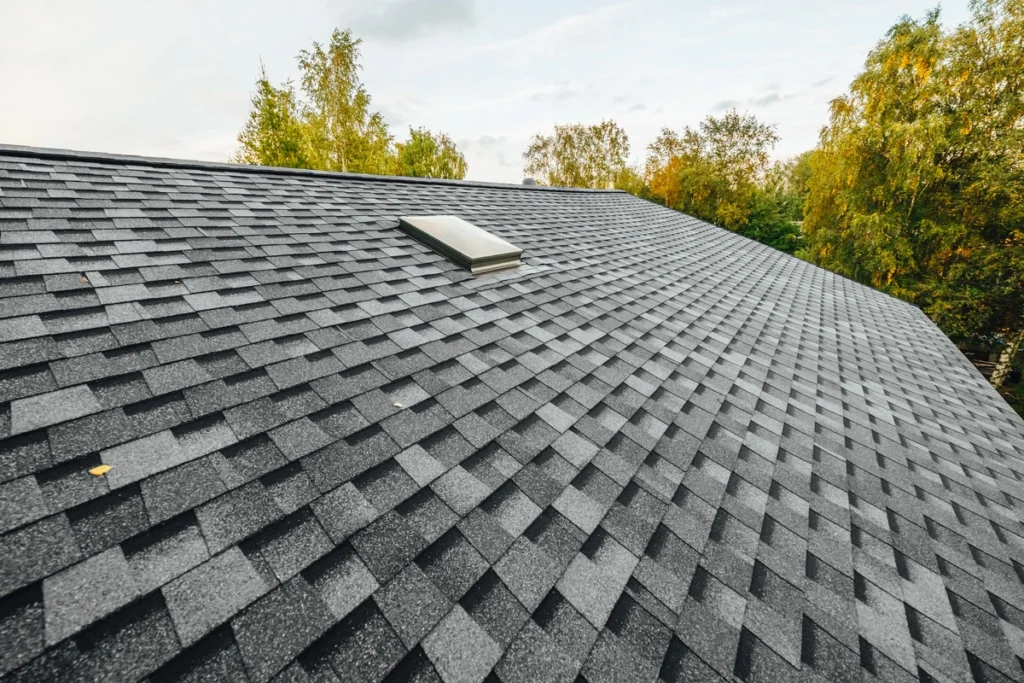
Composite roof shingles, also known as synthetic or composite shingles, are roofing materials made from a mixture of several commonly used roofing materials, such as fiberglass, recycled plastics, and asphalt.
These materials are combined and molded to mimic the appearance of natural materials like wood or slate. The result is a durable, lightweight, and aesthetically pleasing roofing option that offers numerous benefits for homeowners.
Pros and Cons of Composite Roof Shingles
A composite shingle roof has a lot of benefits, but it also can come with some downsides. Here are some of the factors you should take into consideration.
✅ Pros:
- Durability: Composite roof shingles are highly durable and can withstand various weather conditions, including strong winds, heavy rain, and hail.
- Aesthetics: They come in a wide range of styles and colors, allowing homeowners to achieve the look of more expensive roofing materials like wood or slate at a fraction of the cost.
- Low Maintenance: Unlike natural materials, composite shingles require minimal maintenance and are resistant to issues such as rot, mold, and insect damage.
- Cost-Effectiveness: While composite shingles may have a higher upfront cost compared to traditional asphalt shingles, their longevity and low maintenance requirements make them a cost-effective investment in the long run.
❌ Cons:
- Initial Cost: The initial cost of composite roof shingles can be higher than traditional asphalt shingles, which may deter some homeowners.
- Sensitivity to Temperature: Extreme temperature fluctuations can cause composite shingles to expand and contract, potentially leading to cracking or warping over time.
- Environmental Impact: While some composite shingles are made from recycled materials, the production process can still have environmental implications, such as the use of fossil fuels and emissions.
Longevity of Composite Roof Shingles
One of the significant advantages of composite roof shingles is their longevity. While the lifespan can vary depending on factors such as the quality of the materials and installation, composite shingles typically last between 20 to 50 years. Proper maintenance and regular inspections can help extend the lifespan of composite roof shingles, ensuring that homeowners get the most out of their investment.
Why Choose Composite Roof Shingles Over Asphalt Shingles?
While traditional asphalt shingles have long been a popular choice for residential roofing, composite roof shingles offer several advantages that make them a compelling alternative:
Durability:
Composite shingles are more durable and resistant to damage from weather and UV rays compared to asphalt shingles, which can degrade over time.
Aesthetics:
Composite shingles can mimic the look of natural materials like wood or slate more convincingly than asphalt shingles, giving homeowners more design options.
Longevity:
As mentioned earlier, composite shingles typically have a longer lifespan than asphalt shingles, reducing the need for frequent replacements and repairs.
Environmental Benefits:
Many composite shingles are made from recycled materials, making them a more environmentally friendly option compared to traditional asphalt shingles, which are petroleum-based.
Cost to Install Composite Roof Shingles
The cost to install composite roof shingles can vary depending on factors such as the size and slope of the roof, the quality of the materials, and the location. On average, homeowners can expect to pay between $5 to $10 per square foot for materials and installation. While this initial investment may be higher than asphalt shingles, the long-term savings in maintenance and replacement costs make composite shingles a cost-effective option for many homeowners.
How to Take Care of Composite Roof Shingles: 5 Tips
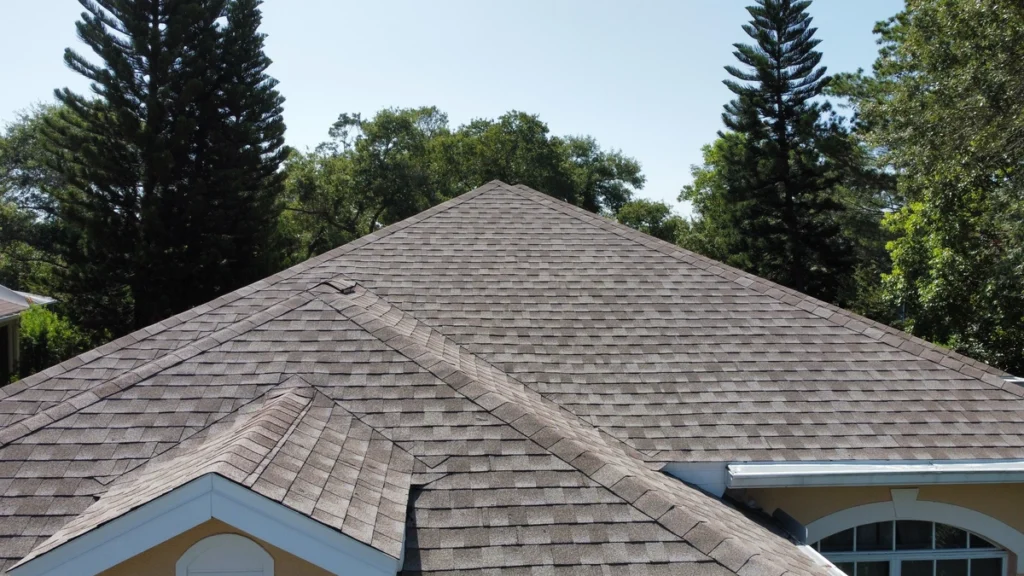
Proper maintenance is essential to ensure the longevity and performance of composite roof shingles. Here are some tips for taking care of your composite roof:
1) Regular Inspections:
Schedule regular inspections of your roof to check for any signs of damage, such as cracks, missing shingles, or loose flashing.
2) Clean Gutters and Downspouts:
Keep gutters and downspouts free of debris to prevent water from backing up and causing damage to your roof.
3) Trim Overhanging Branches:
Trim any overhanging branches near your roof to prevent them from scraping against the shingles and causing damage.
4) Remove Moss and Algae:
If you notice any moss or algae growing on your roof, gently remove it using a soft brush or low-pressure water hose to prevent it from causing damage to the shingles.
5) Professional Maintenance:
Consider hiring a professional roofing contractor to perform regular maintenance, such as cleaning and sealing, to ensure the integrity of your roof.
By following these maintenance tips, you can help prolong the life of your composite roof shingles and ensure that your home remains protected for years to come.
Make The Shingle Switch
Composite roof shingles offer homeowners a durable, aesthetically pleasing, and cost-effective roofing solution. With their blend of durability, longevity, and low maintenance requirements, composite shingles have become a popular choice for residential roofing projects.
Whether you want luxury asphalt shingles or are ready to switch to composite, the team at G Cannon Roofing can help! Contact us today to get started!
